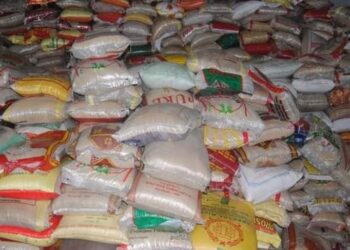Abdullahi M. Gulloma
For President Muhammadu Buhari, the reports issued by international humanitarian agencies including the United Nations (UN) on the high level of deprivation in the north-eastern part of the country occasioned by the activities of Boko Haram were exaggerated.
The United Nations had, a couple of days ago, warned that more than five million victims of Boko Haram face serious food shortages.
Speaking through his Senior Special Assistant on Media and Publicity, Garba Shehu, the President said United Nations and other humanitarian agencies deliberately hype the level of deprivation in the war-ravaged zone to make financial gains.
“We are concerned about the blatant attempts to whip up a non-existent fear of mass starvation by some aid agencies, a type of hype that does not provide a solution to the situation on the ground but more to do with calculations for operations financing locally and abroad,” he said.
To buttress his point, the President highlighted some contradictions found in some of the claims made by the humanitarian agencies on the crisis, saying that in “a recent instance, one arm of the United Nations screamed that 100,000 people will die due to starvation next year” and a “different group says a million will die.”
The President said that while local and international humanitarian agencies have done “an immeasurable amount of effort filling in the gaps wherever they existed, it is not true as these reports have indicated that 100,000 or even a million people will die because the government is unable to provide care at the camps.”
Continuing, the President said that Nigeria has a responsible government, under his leadership, which is doing a lot to bring relief to the displaced people.
Pray so. But my mind raced back to cases of corruption perpetrated by some government officials to the detriment of the IDPs at some camps in the North-east Zone. Not too long ago, there was a reported case of diversion of bags of grains while in some areas, because of the recent resurgence of Boko Haram insurgents, farmers have yet to resume work in their farms.
What’s more, on this note, the President, himself, said that there can be no doubt that the effect of the Boko Haram terrorism and the insurgents’ occupation of communities and destruction of houses, infrastructure and means of livelihood has been manifested in the decline of socio-economic activities throughout the north-east.
Consequently, the President said that farming, pastoral activities, “trade, exchange of goods and services and social interaction among the people have negatively been impacted leading to the displacement of more than two million people, mostly women and children” adding: “There is death, there is hunger and there is poor nutrition.”
In fact, since the release of 21 Chibok girls abducted by the Boko Haram, there has been reported resurgence in activities of the insurgents. Since the release of the girls, Boko Haram has also increased its guerrilla attacks on army and civilian targets.
A few days after the release of the girls, Boko Haram claimed to have attacked a military position in Ghashghar in Borno state, killing 20 soldiers, on October 17.
Later news emerged that, at least, 83 Nigerian soldiers went missing after the attack. The soldiers are yet to be accounted for, while the military has set up a panel to investigate the attack. The Army later admitted that 13 soldiers were wounded in the strike but did not disclose the number of soldiers that went missing.
In between the sect’s strikes, there have been failed suicide attacks, military convoys running into planted mines, and well-laid Boko Haram ambushes. On November 4, the military confirmed the death of one of its most decorated officers in the fight against Boko Haram, Lieutenant-Colonel Muhammed Abu-Ali, killed in an ambush by the insurgents, which also claimed the lives of four other soldiers.
It is, therefore, this type of development occurring in the zone that, in a way, appears to make the so-called reports greeted by the President’s anger, somewhat believable even if they were unfounded.
The reports were hyped, said the President. Yet, assuming they were, we should not be surprised. We, after all, now live in a world of hype. Fact and simplicity mean little or nothing now.
Thus, more than anything and or anyone, the President and his team had themselves to blame, essentially for not hyping their successes, and many were recorded, in the north-east.
Again, it is ironical, if not intriguing, that the agencies arrived at similar conclusions in their report. While the Nigerian government has a mystery here to solve, it will be recommendable for it to commission similar study with a view to getting genuine report of the humanitarian situation in the north-east.
Until that is done, the government, to say the least, had very little grounds to castigate reports issued by some local and international agencies pertaining to the humanitarian situation in the region.



